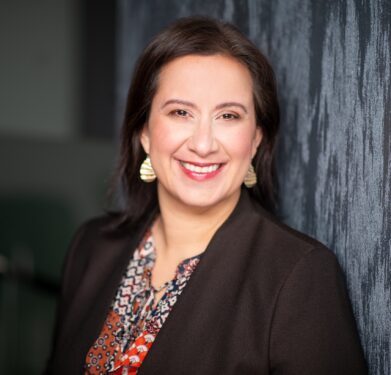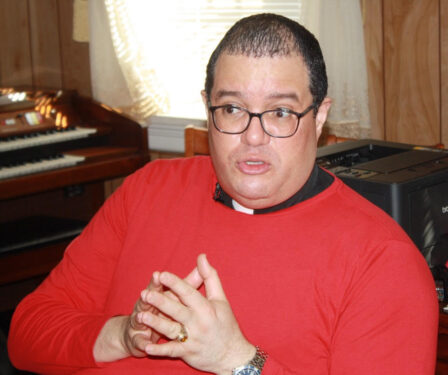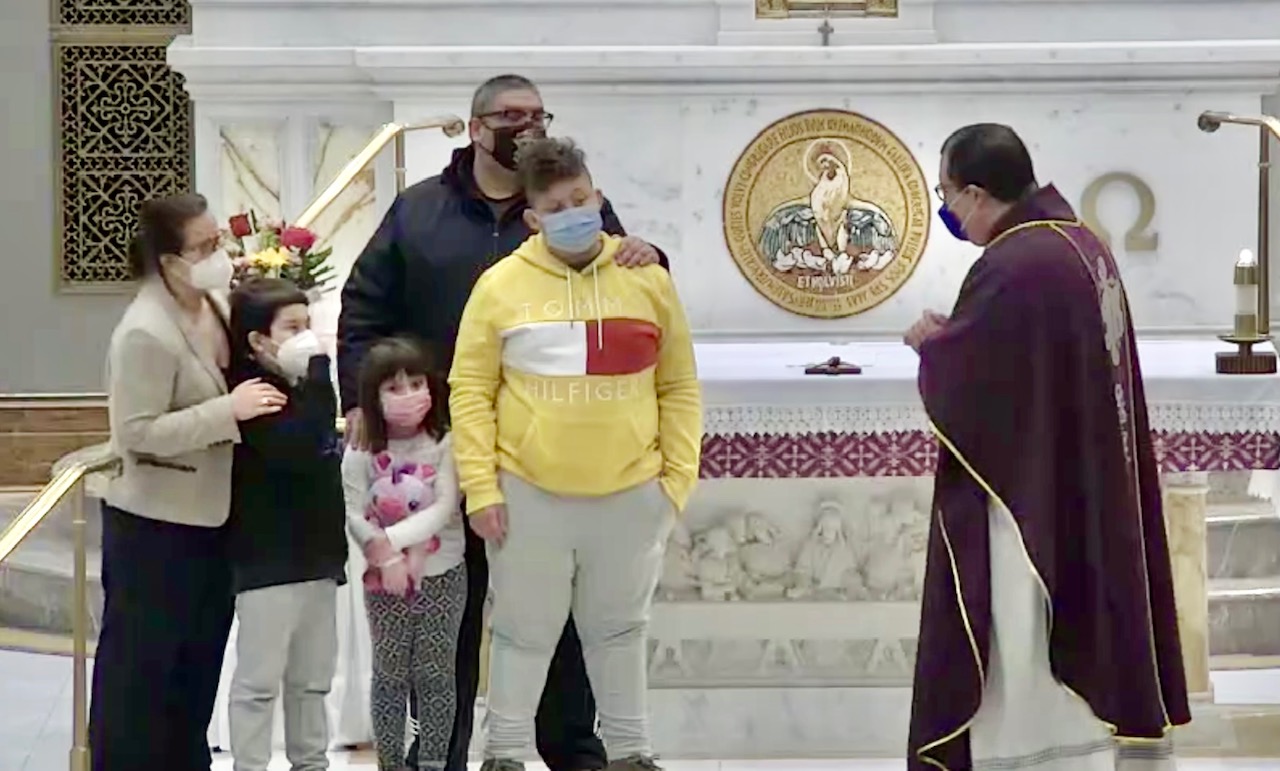CORONA — No borough in New York City escaped COVID-19’s cruelty, but Queens has seen the most deaths, especially in the neighborhood of Corona.
The city’s health department reported that 9,694 people got the disease in the 11368 ZIP code, and 491 died. The city’s average COVID mortality number per ZIP code is 295 deaths, health department data shows.
Helen Arteaga Landaverde of Corona, a longtime public health administrator, was hospitalized for the disease, but she survived.
In February, she became the new CEO of neighboring NYC Health + Hospitals/Elmhurst. It is the largest medical center in Queens and the same hospital that treated Arteaga for COVID-19.
“The amazing doctors in this beautiful building saved my life,” she said. “So I understand what the pandemic has done to our community, to our families, and to our employees. I got to see it live on all different levels.
“And for me, knowing that experience, I feel like God had a plan.”
‘We can fix this block’
Arteaga, 45, is a lifelong member of Our Lady of Sorrows in Corona.
She graduated from its Catholic academy and married her husband, Victor, at the church. Their three children — Victorluis, 13, Moses, 8, and Victoria, 5 — received baptism there.

As CEO, Arteaga will direct the hospital’s ongoing fight to prevent a “third wave” of COVID-19 and readiness for future pandemics.
Arteaga brings to this job more than 20 years of experience improving public health in Queens. She co-founded Plaza del Sol Family Health Center in June 2009 — a labor of love inspired by her father, who died at age 43 in 1998.
“My dad, Luis, was a community activist,” she said. “He didn’t even know what that was. All he cared about was helping out his neighbor. So he did. Whenever someone needed his help, he was always willing.”
Arteaga said her father, an immigrant from Ecuador, was effective because he didn’t let all the world’s problems blind him from the issues at hand.
“He always believed, we can’t change the world, but we can fix this block,” she said. “You can clean the street, and you can say good afternoon to your neighbor. If your neighbor needs help, then you’re there to help them.
Father Manuel Rodríguez became pastor at Our Lady of Sorrows in June. He has since come to know Arteaga’s father by his storied reputation, especially how he befriended then-pastor Msgr. Thomas Healy and partnered with him to help the community.
“Faith has always been a defining value, both for her family and for her,” Father Rodríguez said. “Her father was actually one of the parish leaders when he used to be involved here.”
Arteaga said her father and Msgr. Healy addressed local gang violence through dialog.
“They went to gang meetings,” she recalled. “And they said, ‘Look, this is our neighborhood; this is your neighborhood. If you’re going to sell drugs, don’t sell them here.’
“And, oddly enough, the gang members listened. So my dad believed in, ‘Let’s talk about it. Let’s find a path.’ And I think that’s where I learned my biggest lessons.”
A lifesaving angel
Arteaga’s father died while she was a sophomore in college at New York University. Later she earned a master’s degree in public health from Columbia University. Currently, she is pursuing a doctoral degree, also in public health, from the City University of New York.

After her father’s death, Arteaga struggled for direction, but memories of him nudged her back to his “you can fix this one block” lesson.
“And that’s how Plaza del Sol was born,” she said.
The family health center is on 108th Street, a short walk from Our Lady of Sorrows on 37th Avenue. It is one of 12 health care centers operated by federally licensed provider Urban Health Plan, Inc.
Working with her parish and other community leaders, Arteaga approached Paloma Hernandez, the president and CEO of Urban Health Plan, Inc., to help create the center.
Today, it offers access to a bilingual staff specializing in pediatrics, internal medicine, nutrition, and radiology.
Father Rodríguez called Plaza del Sol an “angel.”
“It is a lifesaving angel here in Corona,” he added. “People go there — any people, senior citizens, undocumented, youth, and children. And their arms are wide open to serve anybody with love, compassion, and care.”
“We opened with a team of 12 and with 36 patients,” Arteaga said. “Now we have 27,000 patients and a team of 120. I mean, when you think of that, not only did we change a block, we changed the ZIP code.”
Arteaga realized it was time to move on to another block.
“I went to a fundraiser,” she recalled, “and someone was speaking about inspirations and dreams. I realized that I stopped dreaming a little bit. And again, it was that extra push of like, ‘Helen, you’ve fixed this block already. You need to go to the next block.’ ”
When the Elmhurst position opened, Arteaga applied and got the job.
“The cool thing about Elmhurst,” she said, “is that Elmhurst is Plaza del Sol, just bigger — times ten. Elmhurst hospital is my next block. It’s a very big block, but it’s an exciting block.”
But bigger blocks come with bigger problems.
For example, in the earliest days of the pandemic, Elmhurst was inundated with COVID-19 patients from the surrounding neighborhoods, including Corona.
As Queens became the epicenter of the pandemic, Elmhurst hospital was “the focal point of the nation,” according to Borough President Donovan Richards, Jr. He recalled unforgettable images of Elmhurst’s frontline workers, “as they worked day and night to keep Queens residents and their loved ones safe and strong.”
Richards added that Arteaga is the right person to lead Elmhurst.
“Helen is the exemplary public servant and healthcare hero Queens deserves to move Elmhurst forward,” he said. “The Office of Queens Borough President is here to support her and the entire team.”
Not on this path alone
Arteaga knows she will need help. She has targeted $30 million worth of capital improvements to help everyone, including the poor and undocumented.
“One thing you’ll notice about Elmhurst — it’s huge, but its infrastructure is old,” she said. “We have to renovate and redesign our emergency room, our ORs, our ICU units, our labor, and delivery.
“I want our patients to come here and feel that they’re walking into the best hospital that they can. Just because you’re poor doesn’t mean you have to go to a place that looks poor.”
Ultimately, Arteaga said she would rely on the Catholic faith she learned at Our Lady of Sorrows.
Sometimes, Arteaga said, she feels like saying, “Oh, I don’t think I can take a step more.”
But, she added, “My faith has come in and said, ‘Yes, you can. You can take one more step for your patients, for your community, for your family, and for yourself.’ It makes you feel you’re not on this path alone.
“And I also like to feel that God and my dad are hanging out, and they talk to me indirectly.”

